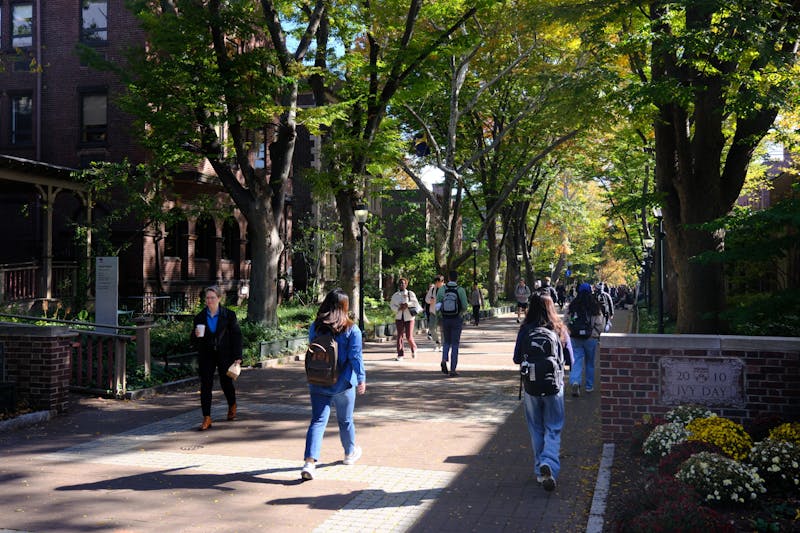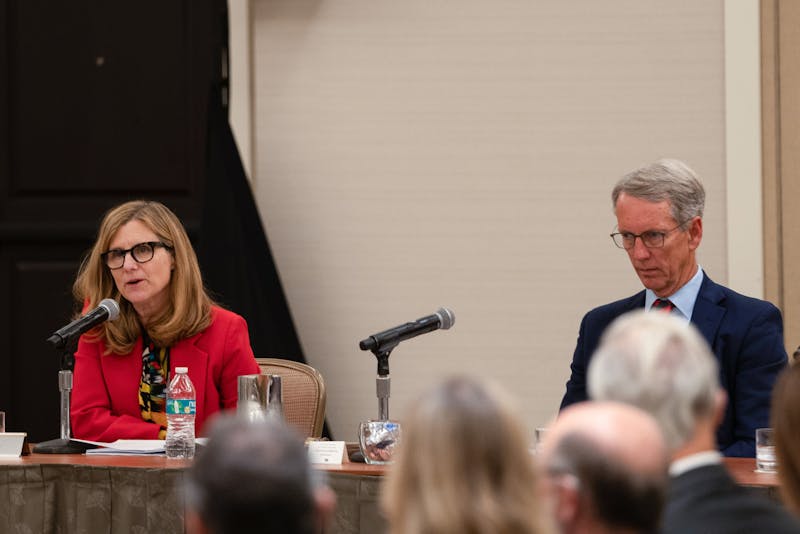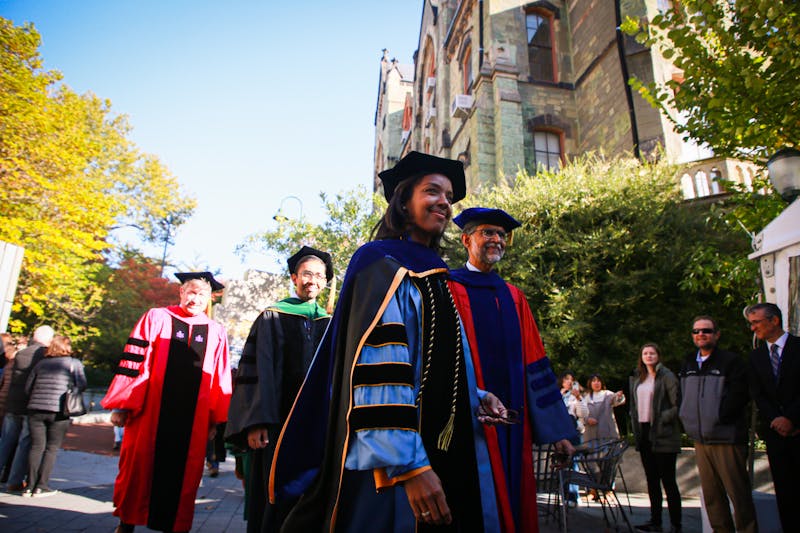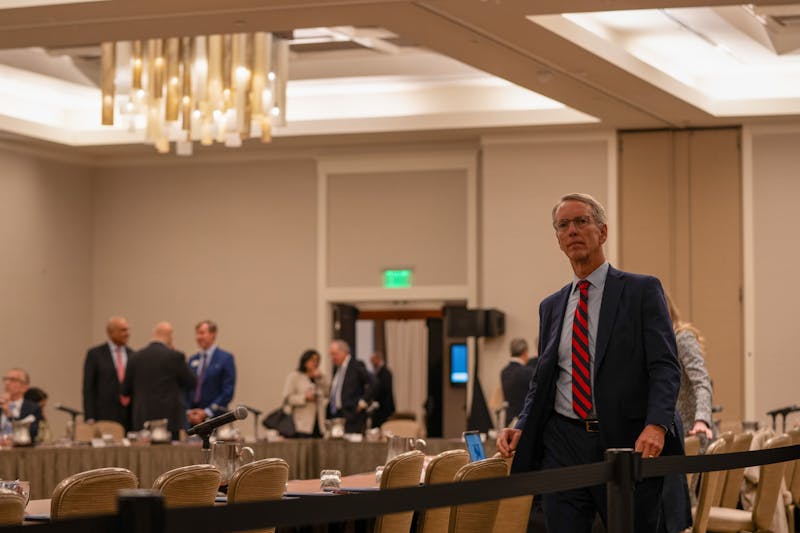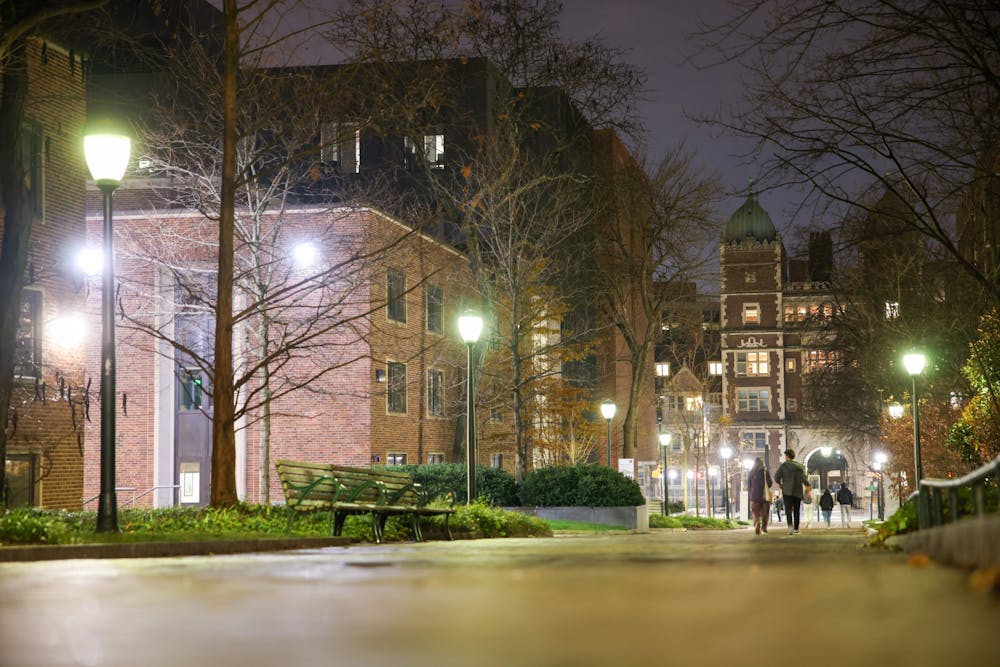
After Penn President Liz Magill’s resignation, University alumni and donors expressed mixed opinions about her unprecedented departure.
Magill’s resignation was announced in an email to community members on Dec. 9. According to the email, Magill voluntarily resigned her position as president and will remain a tenured faculty member at the University of Pennsylvania Carey Law School.
Multiple alumni said that the resignations of Magill and University Board of Trustees Chair Scott Bok were necessary after the mounting scrutiny Magill has faced.
1994 Wharton undergraduate and 2000 Wharton MBA graduate Lawrence Berger said that he “loved Penn” and that it “absolutely changed his life,” but that the resignations of both Magill and Bok were “long overdue.”
“I am very happy that she [Magill] and Bok finally resigned, and I am hopeful that there’s a lesson learned here,” Berger said. “The problem, I believe, is that you had a lot of trustees who backed her for a long time and built this institution to what it is now, which is an institution that is very rotten to the core and needs to be fundamentally changed.”
Berger also noted that he believed the resignations were “a step in the right direction,” but that there was more work to be done.
“I do not believe this cures all ills on campus,” Berger said.
1972 College graduate Jeff Rothbard told The Daily Pennsylvanian that he “felt a sense of relief” when he heard of Magill’s resignation, but agreed that the resignations of Magill and Bok were not “going to cure the underlying problem that existed before either of them took office” in regards to antisemitism on campus.
Other alumni, including 1984 College graduate David Dormont, agreed.
Dormont said that he “thought it was a good thing that [Magill] was resigning as she had lost all credibility at all levels of the University” and that “there was no path forward.”
The announcement of Magill’s resignation on Saturday came after unprecedented nationwide media attention following remarks at a congressional hearing on Dec. 5 where Magill said it was “context dependent” when Rep. Elise Stefanik (R-N.Y.) asked her whether calling for the genocide of Jewish people violates Penn’s code of conduct — making reference to chants of "Intifada revolution" on campus during student and community protests.
As for next steps and the future, Dormont said that he “think[s] it’s a long road ahead” and believes having “an honest dialogue about what’s going on at all levels and addressing things to improve Jewish life on campus” is important.
At the same time, some alumni expressed concern over how Magill's resignation followed significant backlash and what her resignation means for free speech.
1968 Wharton graduate and Edward H. Levi Distinguished Service Professor of Law at the University of Chicago Geoffrey Stone wrote to the DP in a statement that Magill handled a “challenging set of issues in a highly responsible and thorough manner.”
“As a ‘68 Penn alum, a former Provost of the University of Chicago, the author of The Chicago Principles, and an accomplished free speech scholar, I am deeply disappointed and embarrassed that my alma mater treated President Magill so thoughtlessly and with such disrespect,” Stone wrote in the statement.
The University's "Free Speech FAQs" detail Penn's guidelines governing hate speech. These rules state that speech can only be disciplined by the University if "the inflammatory speech intentionally and effectively provokes a crowd to immediately carry out violent and unlawful action."
In a written statement to the DP, 2000 Wharton graduate and Penn Grappler’s Club President Brett Matter thanked Magill and Bok for their service and wrote that the club members “remain optimistic about the University's ability to thrive”.
“We stand by our core values, and look forward to working with the Penn community to rebuild confidence and trust in the institution we love,” the statement said.
The Daily Pennsylvanian is an independent, student-run newspaper. Please consider making a donation to support the coverage that shapes the University. Your generosity ensures a future of strong journalism at Penn.
Donate







